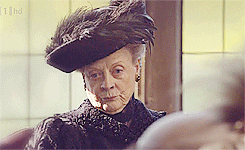Entertainment is important. As much as some people would like to disqualify any or all forms of it as vacuous or pointless, entertainment has been a key part of the human experience for as long as we have a record as a species. From bards and ball games to checkers to television, we need entertainment. As a friend of mine once put it: “A doctor saves lives all day but what’s keeping the doctor from falling into depression sparked by all the gloom they see?” Perhaps a couple of episodes of Brooklyn 99. Maybe the prospect of a game of [insert any sport] next weekend.
Even more so than that, entertainment has always been a way in which we relate to each other. Bonding over a shared enjoyment of something is still a nearly fool-proof way to make friends. But people are intense about the things they like, so it’s almost as easy to make enemies as it is to make friends. Just as British football fans.
It is strange to me, this rivalry over differing tastes. I get the playful rivalry in the sports world, but I don’t get why it gets intense and real enough to come to blows over whose team is the best team. I do not get serious rivalries between TV shows or films or comics fans. Sure, you can sit down to compare two shows, or begrudge the cancellation of a one versus another that was renewed, and you view as having lower quality. It’s normal to be upset your favorite show lost an Emmy to a perceived lesser contender. There is a difference, though, between that and active animosity towards another fan.
Yes, I engaged in a short epoch of 1-hour “Why Harry Potter is better than Twilight” rants with my friends when I was a teenager, but me and most of my friends outgrew that after adolescence and that was that.
Maybe it’s that I’m just getting older and bitterer, but I see it as rather sad when grown-ass adults engage in petty fights over whether Luke or Rey were better protagonist for Star Wars. Or worse, whose ship is better than whose. Note that I wrote “fights”, not discussions. People within the same fandom insult and demean each other over preference of an aspect of their “thing”. They invade each other’s spaces specifically to do this. I really don’t know if it’s my bitter old person perspective, but it seems to be happening more and more, especially in online spaces. Why is that? What changed?
The Increasingly Isolated Experience of Fandom
Very recently I ran into an amazing quote by Hamilton creator Lin-Manuel Miranda on Playbill, where he talked about the healing qualities of theater. He talks about many people being in a room at the same time having the exact same experience, which is in his words “increasingly rare” as we live in a world where we can “curate our own reality”.

Ruminating as I had been on fandom for a long time now, I was struck dumb by it. I had a eureka moment. Perhaps it’s not new to anyone but I had honestly never connected the dots between Fandom toxicity and the increasingly isolated experience of being in fandom. I’ve said this before, I think, but the market for entertainment is almost dizzyingly segmented now. There is content to please even the most niche tastes—all to proportion, of course. Combine this with the way we consume media nowadays. We manufacture a viewing schedule that meets our exact tastes. We can completely avoid the things we dislike, and that includes both shows and other people’s differing opinions.
Being a fan twenty years ago was vastly different, with much less readily available content content catered to us. I can’t lie and say I don’t like many parts of that. I especially enjoy the fact that now there are options for many minorities to watch and feel represented. And yet…
I can’t help but feel like with the positive came an exacerbation of the negative. Fans being combative with each other is nothing new. I’m sure it was happening in the times of the Greeks, where people would get into fights about how “the amphitheater in Epidaurus is so much better, oh my gods” … or something.
You’re Liking It Wrong
A while ago I saw a post on Tumblr—which I now can’t find, as fate would have it—where the user put all this I’m saying much more briefly and eloquently. Paraphrasing, they said we don’t know how to enjoy things and celebrate enjoying them together. What we do instead is begrudge each other for not liking the exact same aspect of “the thing” as us. We lecture each other about how “You’re liking it wrong!” instead of listening to their point of view and sharing our own. This is especially true on the Internet.
With the segmentation of fandom, you can’t even generalize the “it” we all like anymore. There is no Supergirl fandom. There are the “Supercorps” (people who ship Kara Danvers with Lena Luthor) and the “Karamels” (Kara and Mon-El), the “Supercats” (Kara and Cat Grant) and the “Karolsens” (Kara and Jimmy Olsen). Some of these are allowed to overlap and some decidedly not so by some unspoken rule. On She-Ra there are the “Catradoras” and the “Glimmadoras” and boy are they mean to each other. The Star Wars fandom is more divided than ever since The Last Jedi came out.
(There does tend to be a pattern of “shipping” antagonism in general, but I don’t have the mental energy to unpack that can of worms.)
Each fandom within fandom has its followers. And if you’re not in my inner fandom you’re liking it wrong and if you jump ship how dare you and you’re a traitor. You’re liking it wrong.

I have been around the Internet for a while now, and if I try to trace it back I always get to the same point: the beginning of “Call-out culture”. (LINK). This started with fans pointing out problematic aspects of media and bad behavior of fandom or actors. Very many times, these kinds of arguments come disguised as that. The 100’s biggest opposing factions, “Clexas” (Clarke and Lexa) and “Bellarkes” (Bellamy and Lexa) have been screaming at each other about how Lexa or Bellamy, depending, are toxic for Clarke, the story’s protagonist.
Listen, listen. I’m sure some of those arguments are heartfelt and sometimes even true. But many of the ones I have seen—I’d even say most—boil down to “I don’t like this and it bothers me that you do.”
We’re not enjoying the collective experience of being fans anymore. We’re just loudly resenting each other for not liking the exact same aspects of the thing we’re all supposed to love.
Interlude: Disclaimer
I would like to make it very clear for all the people out there that I am in no way saying that criticism of media or criticism of fandom and the way it acts is invalid. That is not the point I’m trying to make. There are many instances in which is call-out are… well, called for.
What I’m saying is the vitriol in fandom has gotten to a point where it isn’t even pleasant to be in it anymore. And a lot of fights, criticism, invasion of spaces, is done flying the “righteous call-out” flag, and it honestly only cheapens warranted criticism.
Let’s Not Be Horrible 2k19
Here’s something: There is no excuse to be a horrible person to someone else. Especially unpromted.
I recently binge-watched She-Ra on Netflix (haven’t seen season 2; no spoilers!). It was cute and I was happy, so I went into one of the tags on Tumblr and…holy shirt balls, Batman. The amount of vitriol and hate going on was so overwhelming I lasted all of two minutes and threw my phone away like that GIF from The Big Bang Theory.

The thick of it is (of course) a ship war. I go back to my previous point about invading other people’s space to sh*t talk them. So many people deliberately tag the opposing fandom to insult, belittle or otherwise oppose the thing they don’t like. And my question is a big, bold WHY?!
It’s one thing to complain with your friends, in your space, about how you dislike a character, a ship, a show. I mean, we have a space here on this website where you can pour your heart out about how much you hate Game of Thrones live every week. You don’t need to crap on someone else’s enjoyment of it in their happy place. There are also spaces where debating is the point and you should come armed with receipts, but not insults. Never insults. It is something else entirely to be horrible to one another about the things that are supposed to make us happy.
A Call for Truce
I had planned to drone on about this much longer. I even did. Then I deleted it because realized there’s not much more to say without repetition—and let’s be honest, this is rambly enough. All of the above is just a preamble, really, to what I really want to say:
I’d like to officially wave a white flag.
In the end, it is about basic human decency and respect. Attacking people personally for thinking differently than us is how so many of the problems of the world have begun. We really need to ask ourselves why it bothers us so much that someone else likes things differently than us.
To me, the answer is simple: we take it personally. We project, we see ourselves in characters. Therefore take other people not liking them, criticizing them, trying to pair them up with someone we don’t like or openly despise, as them not liking us, and everything else us.
I am offended. I don’t like them. I feel attacked. But it is high time we realized that what other people like or don’t like has nothing to do with us and everything to do with them, an overwhelming amount of the time. How they project themselves and the relationships they favor are their issues and theirs alone. And we can respect that, can’t we? Respect for respect. An equivalent exchange. A win-win.
I’m old and bitter, but I still stubbornly retain some of my idealism. I believe that starting small—say, within the comments and forums of this website, for example—can create a ripple effect to be extended across fandom.
I share with you my message of peace and love:
Let’s learn how to agree to disagree. For real.
Let’s live and let live.
Let’s ship and let ship.
Let’s learn to enjoy things again.
Let’s share in that enjoyment while accepting our differences.
Sounds easy, doesn’t it. I honestly think if we can’t learn to do this, if we can’t learn to coexist with respect for each other on a basic, human level… well, then we are certainly liking things wrong.

